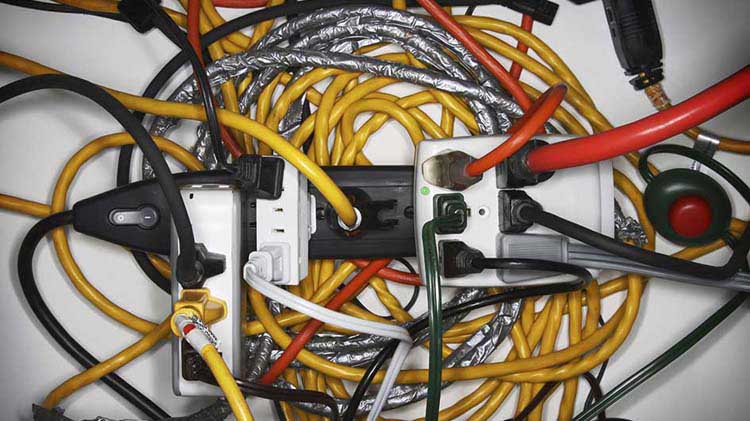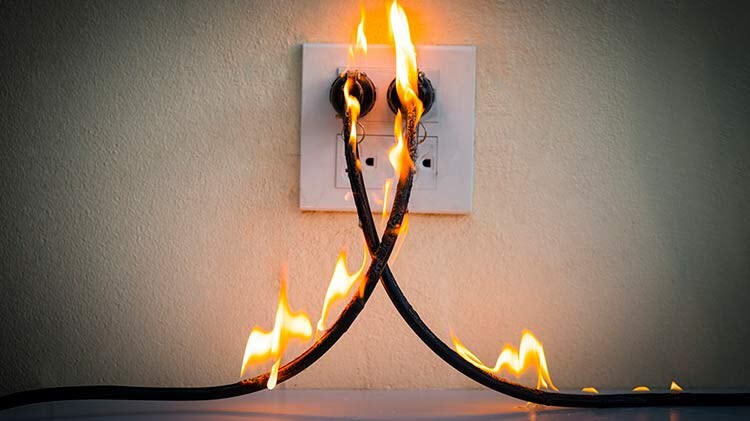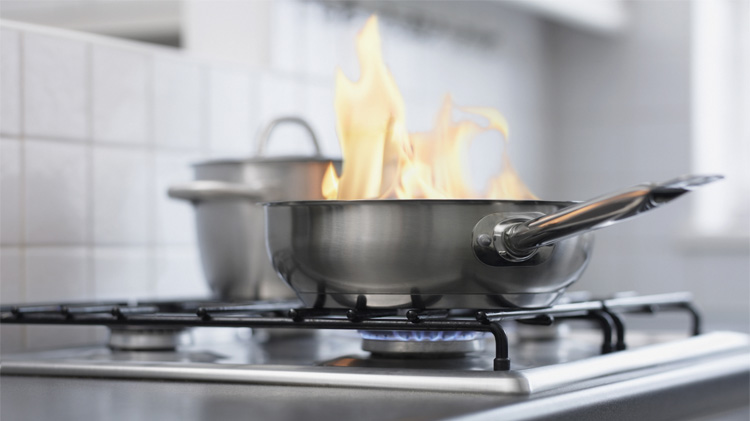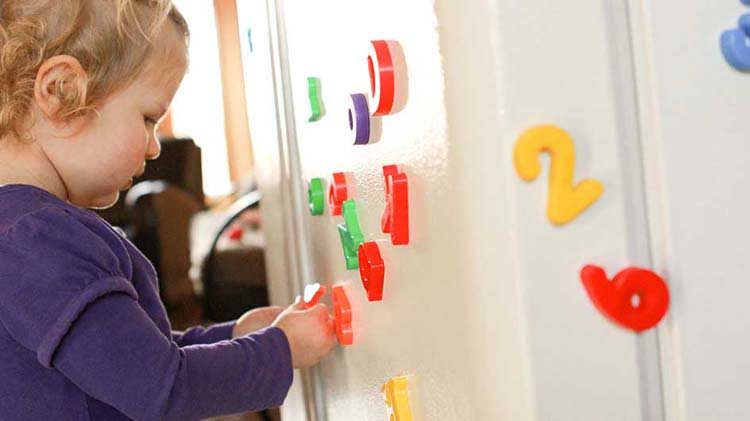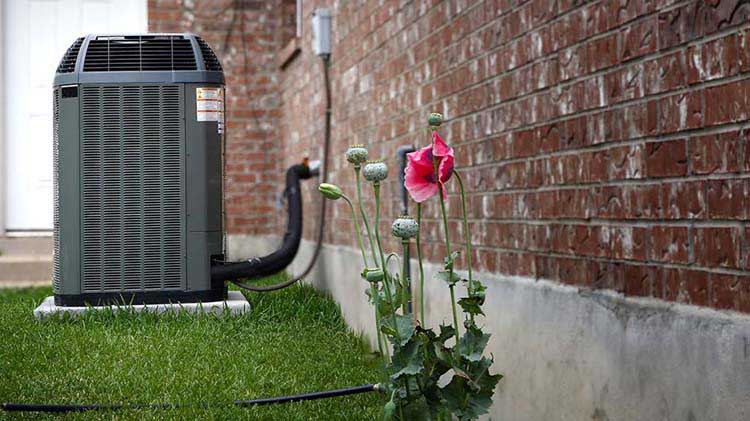Extension cord safety: What to do and what to avoid
Don't let your extension cords become potential fire hazards.
Extension cords are a common and convenient way to bring power to electrical devices. But used without proper caution, they can become fire hazards and pose risks to your personal safety.
Follow these tips to help keep your home safe when using extension cords.
Key takeaways for extension cords
- Selecting the right cord
- Using extension cords
- Caring for your cord
- Extension cord hazards
Selecting extension cords
- Consider cords that have been approved by an independent testing laboratory, such as Underwriters Laboratories (UL).
- For outdoor operation, use only extension cords marked for outdoor environments.
- Read the instructions (if available) for information about the cord's correct use and the amount of power it draws.
- Select cords rated to handle the amps and wattage of the devices with which they'll be used. A cord's gauge indicates its size: The smaller the number, the larger the wire and the more electrical current the cord can safely handle.
- For use with larger appliances, thick, round, low-gauge extension cords are best. For smaller appliances and electronics, you can use thin or flat cords.
- Consider the length you'll need. Longer cords can't handle as much current as shorter cords of the same gauge.
- Choose cords with polarized or three-prong plugs.
Get a homeowners insurance quote
Want to protect your home?
Using extension cords
- Inspect the cord for damage before use – look for frayed cords and broken prongs and discard if you find any signs of damage.
- Never remove an extension cord's grounding pin to fit into a two-prong outlet.
- See that the extension cord plug is fully inserted into the outlet.
- Avoid powering multiple appliances with one cord.
- Never use indoor extension cords outdoors.
- Don't overload a power strip or plug multiple cords together.
- Don't run extension cords under rugs or furniture.
- Never tape extension cords to floors or attach them to surfaces with staples or nails.
- Don't bend or coil cords when they're in use.
- Don’t use extension cords with space heaters.
- Keep children and pets away from plugged in cords – and consider covering unused cord receptacles with childproof covers.
- Stop using extension cords that feel hot to the touch.
Caring for extension cords
- Unplug extension cords when they're not in use.
- Pull the plug — not the cord — when disconnecting from the outlet.
- Store cords indoors.
- Throw away damaged cords.
Extension cord hazards
- If an extension cord is covered (such as under a rug or within a wall), heat is unable to escape and could result in a fire.
- Cords can be a trip hazard. See that extension cords are visible and not running across highly trafficked areas.
- A wet extension cord could cause a short in your electrical devices or lead to electric shock. Take extra precautions to keep your cord dry and avoid letting your cord rest in water or snow.
Extension cords are intended as temporary wiring solutions. If you find you're using them on a permanent basis, consider updating your home's electrical system. Also remember to maintain your fire safety equipment such as your fire extinguishers and smoke detectors.
